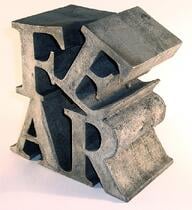When we enroll a new client for the Debt Settlement Program, most of the time they are confused about what a debt collector can and cannot do.
Although the whole experience of facing severe financial circumstances is stressful, let me help alleviate your fears.

OK...
For all kinds of reasons or circumstances, you just cannot keep up with the minimum payments required on your credit card accounts.
The annoying calls and letters come many, many times a day!
The last call left a message and the guy said that unless you contact them right away, they may decide to start legal processes to collect the money you owe.
Your mind starts fearfully asking:
- Can they take money out of my bank accounts?
- What about my paycheck? Is it safe?
- Will I have to sell my house or car?
- What about my jewelry, tools, or other things I value?
Let me walk you through the debt collection process so you can start to understand what a collector can and cannot do:
Once you miss a couple of months of the required payments due, you'll start getting letters saying something like...
"Mr. Jones, your XYZ Account is seriously past due and unless you call us immediately, your account may be turned over to an attorney for collection."
If you've just had a temporary financial setback and have enough money to catch up or start making payments again, you may want to call and see what they will do to help get you back on track.
They should be willing to work out some kind of plan to start taking your monthly payments again.
But if you find yourself with just too much debt and not enough money coming in to keep up, then what should you do?
It really depends on a lot of circumstances:- How delinquent is the account?
- How much do you owe?
- What kind of account it is?
- Who the creditor is (some will work with you and some will not).
If it comes down to paying the rent or mortgage, utilities, groceries, etc. (the really important bills) and making credit card (unsecured) payments,
PAY THE IMPORTANT BILLS FIRST!!!!!!
Usually a creditor will try to get you back to paying monthly payments (they need that interest!) for a couple of months.
If unsuccessful, they will either send to their internal recovery department or to a debt collector or even sold to a debt buyer.
An account is deemed "CHARGED OFF" when the creditor decides that they are not going to spend any more time trying to collect and are going to write the account off as a loss.
Yes, there are companies that buy millions of dollars of debt for pennies on the dollar in order to try and collect.
Either way, now you can do a couple of things:
1) PUT A STOP TO THE CALLS!
2) You may be able to negotiate a SETTLEMENT for less than the balance.
Your account may now be with the original creditor's internal recovery department, a debt collection agency or a Law Firm that specializes in debt collection.
HERE'S WHAT YOU NEED TO KNOW...
At this point, creditor, debt collector, debt buyer or law firm CANNOT:
- Garnish your wages, retirement income, disability income (an several other exempt income sources).
- Levy your bank account
- Repossess your TV, stereo, furniture, jewelry, tools, etc. (unless they were used as collateral)
- Arrest you or most any other thing you may think!!!!
BUT... (very important you understand the following!):
If no agreement can be reached, the creditor or collector may decide to file a CLAIM.
A CLAIM is a legal document filed with the court of the county of your residence.
You will be delivered a SUMMONS.
Basically is says that XYZ is claiming that you owe $$$$ and that if you want to dispute the CLAIM you have (avg.) of 30 days to file an ANSWER with the court.
A ANSWER is a legal document (usually prepared by an attorney) that PROVES that you have paid or why you do not owe the debt. There is a fee for filing the ANSWER and fees for the attorney who prepares it.
Most people know they owe the debt so they don't file the ANSWER.
NOW WHAT???
At this point, an agreement can still be negotiated to stop the legal process, but is it VERY IMPORTANT that you DO NOT IGNORE the SUMMONS!!!
If an agreement cannot be negotiated, the the PLAINTIFF (the creditor or one filing the claim) may move forward for a DEFAULT JUDGMENT.
You don't want this to happen!
If a JUDGMENT is awarded to the PLAINTIFF, then now the PLAINTIFF has the right to apply for a WRIT OF GARNISHMENT OF WAGES OR BANK LEVY.
To prevent this, a SETTLEMENT or STIPULATED AGREEMENT may be negotiated.
A SETTLEMENT is an agreement whereby the PLAINTIFF agrees to accept an amount less than the balance due. It may have to be paid in a LUMP SUM or in many cases, a LONG-TERM PAYMENT agreement.
Either of these is usually much better than a WAGE GARNISHMENT!
A WAGE GARNISHMENT is usually (in most states) 25% of you net (after tax) paycheck!
Let's say you earn $5,000/month. If State (if you have) and Federal tax withholding equals 35%, you net take home would be about $3250.
25% of $3250 equals $812.50 ! ! !
If you're facing a financial crisis now, how could you survive if your income was cut by over $800 more!
Again... DO NOT IGNORE A SUMMONS!
SUMMARY:
A creditor or debt collector cannot just "take your stuff" when you don't pay your required payments due.
There's a whole process that must be completed first.
However, YOU HAVE TO TAKE ACTION!
It is not easy dealing with collectors and attorneys.
Time consuming and frustrating, but absolutely necessary to prevent GARNISHMENTS!
This may help:








